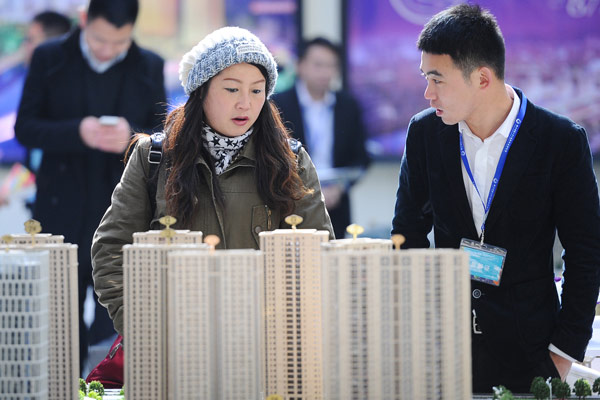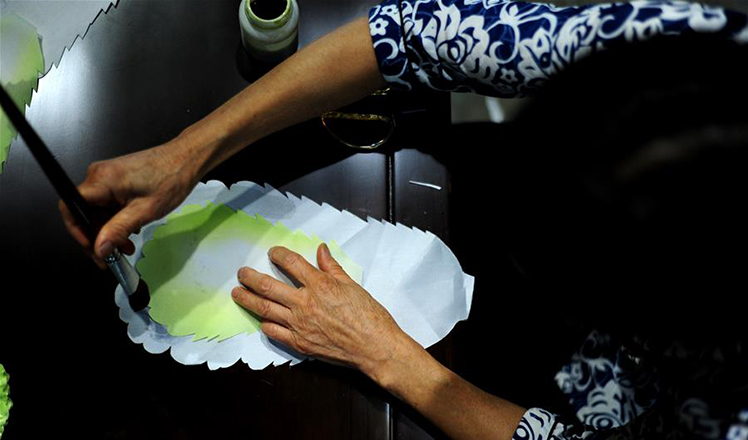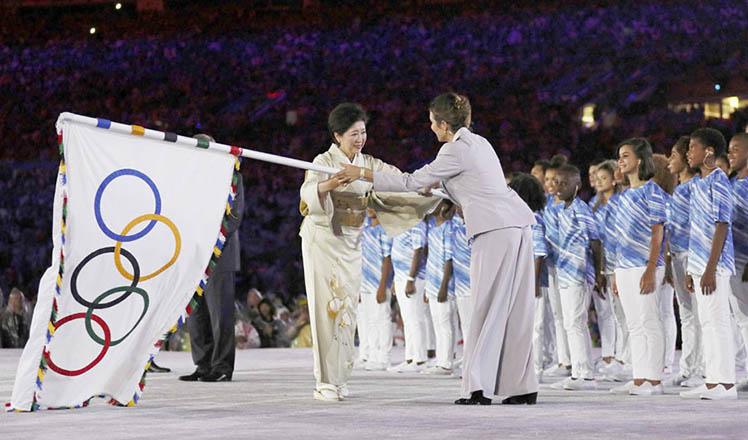Study shows developers' softening outlook
Updated: 2016-08-25 07:29
By Shen Lan(China Daily)
|
||||||||
 |
|
A woman talks with a salesman at a property market fair in Hangzhou, Zhejiang province.[Photo/China Daily] |
China's property market was a roller-coaster ride in the first half of this year. Housing sales spiked in the first quarter before cooling down in the second. The surging housing prices in some second-tier cities have resulted in a new round of local tightening measures.
To assess the developments in the first half and gauge developers' expectations from the second half, we (Standard Chartered China) conducted a semi-annual proprietary survey of China's property market in July with the focus on unlisted developers in lower-tier cities.
The survey shows developers' construction activity accelerated in the first half, and the momentum is expected to be sustained in the second. Construction of new projects improved in the first half, and the completion rate of the total floor space of newly started construction increased to 36 percent-from 18 percent growth in the first half of 2015 and 23 percent in first half in 2014. This momentum is expected to continue during the rest of this year, as the completion of projects under construction will boost sales revenue for developers.
The land market appears lukewarm despite high land prices, although rising land prices remain a concern. Most of the developers expect a continued mild rise in land prices-within 10 percent-in the second half of this year.
Unlike the spike in top-tier cities, housing sales seem stable in our surveyed lower-tier cities, and most of the developers remain cautiously optimistic about the sales outlook for the rest of the year.
Price discounts were less prevalent in the first half of the year; instead, average selling prices showed an upward trend, with a rise of 10-20 percent. But to promote sales, additional offerings were still in place.
The survey showed the percentage of first-time buyers dropped to 43 percent from 50 percent in the January survey, and the percentage of upgraders increased to 46 percent from 43 percent. While real demand continued to dominate the market, speculators increased to 11 percent of total buyers from 7 percent earlier. So, destocking of existing inventory likely remains the theme for the local markets.
Our survey revealed initial signs of developers' financing coming under stress again. This may weigh on their expansionary appetite going forward. Funding from sales revenue appears to have become more important.
In terms of general financing conditions, most respondents were slightly nervous or worried about their cash positions in the near future, especially if sales fail to improve.
Default cases continue, and our surveyed developers see a slight rise in the default risk in the second of the year, although defaults are not expected to be prevalent.
The developers expect policy loosening at the local government level, but a neutral stance at the central government level. As to different forms of policy measures, the developers expect the down-payment ratio for buyers to be maintained or lowered; interest rates for mortgage loan to stay flat; tax and subsidies for buyers to become more favorable; and hukou (household registration) restrictions to be marginally eased during the rest of the year.
The survey also shows signs of weakening housing-market sentiment for the second half. And the developer sentiment indicator shows a three-year cycle span since 2010. The latest cycle appears to have reached a high in the first half of this year; the lower July survey reading may indicate a potential cooling down of the property market ahead.
We believe the central government will base the housing policy this year on two key targets: destocking and supporting real demand. Given that lower-tier cities didn't see a clear pick-up in their local markets in the first half, the local housing market policy may stay accommodative and could focus on containing default risk and facilitating destocking.
The author is an economist at Standard Chartered China.
- China, Japan, S. Korea should work to make differences controllable
- Several killed after strong quake strikes Italy, topples buildings
- FM's Tokyo trip to help set trilateral G20 cooperation tone, source says
- DPRK's renovated central zoo attracts thousands of visitors every day
- Canadian PM to visit China
- UN Security Council slams deadly terrorist attack in Turkey

 Top 5 smartwatches in customer satisfaction
Top 5 smartwatches in customer satisfaction
 Woman creates silk Chinese cabbage
Woman creates silk Chinese cabbage
 Panda family celebrate birthday in Malaysia
Panda family celebrate birthday in Malaysia
 Life of an underwater photographer
Life of an underwater photographer
 Lakers confirms Yi Jianlian's signing
Lakers confirms Yi Jianlian's signing
 Premier Li pays homage to Red Army martyrs
Premier Li pays homage to Red Army martyrs
 'Born in China' in Chinese paintings
'Born in China' in Chinese paintings
 Goodbye, Rio; hello, Tokyo
Goodbye, Rio; hello, Tokyo
Most Viewed
Editor's Picks

|

|

|

|

|

|
Today's Top News
Trump outlines anti-terror plan, proposing extreme vetting for immigrants
Phelps puts spotlight on cupping
US launches airstrikes against IS targets in Libya's Sirte
Ministry slams US-Korean THAAD deployment
Two police officers shot at protest in Dallas
Abe's blame game reveals his policies failing to get results
Ending wildlife trafficking must be policy priority in Asia
Effects of supply-side reform take time to be seen
US Weekly

|

|







